- Home
- catt dahman
Titanic 1912: A Lovecraft Mythos Novel
Titanic 1912: A Lovecraft Mythos Novel Read online
Titanic QED
Catt dahman
Chapter One: Titanic: Boarding Call
The Titanic was a colossal sea creature that breathed dark soot from her four smokestacks as she towered high in the water. Howard, clutching his leather satchel close to his chest, took his first up-close look at the ship and saw her as a leviathan, ravenous and grotesque. Passengers entered her sinister labyrinths to find themselves a part of the mystical, Bacchanalian voyage, or so he thought.
If asked to describe the Titanic, he would use those exact words, and he sighed as he turned his eyes away, shivering.
“You are fretting again, Howard,” Delora said. Her skirts rustled lightly, and she turned her face to the sun, her hat shading her face. The weather was glorious for sailing.
“She is so big. What secrets does she hold?”
“Of course, she is big; that is the point, dear. This is the most fascinating ship on earth, and we are going to be on her maiden voyage. This is exciting, Howard,” Delora said.
She had concerns for her nephew; he was handsome with pleasant features and large, brown eyes, was brilliant of mind, but was always overly anxious.
“And she is a luxurious ship. I understand the furnishings are French and quite opulent,” his other aunt, Annie, added. She patted her hair back into place, straightening her hat, as she made sure she was well turned out for the boarding.
“Once we are upon her, she is in control, Auntie. Is she not a frightening beast? Such power. La belle dame sans merci.”
Annie shook her head, becoming angry at his histrionics, “Stop right now. She is a marvelous ship, and I cannot wait to enjoy every amenity available. You are being petulant and ridiculously morbid,” she told him before pausing to take a deep breath. Howard was prone to these moods, and it was not something he could control. She tried again, “Dear, enjoy this. This is a once-in-a-lifetime chance and you, above all, should enjoy something unique.”
Howard took Annie’s elbow as they walked around a family who had stopped to let the little ones have a look at the majestic Titanic. The ship was almost nine hundred feet long, over ninety feet wide and almost three hundred feet tall. Although she was one of the three biggest ships ever built by the White Star Line and was set up as a fine hotel and devoted to luxury, Howard shuddered with a bit of revulsion as he watched her become bigger and closer as they walked in her direction.
It was to this steel giant that they were surrendering themselves.
“Does she not seem…foreboding?”
“Not at all,” Delora said.
“Are we early?” Howard asked.
“We are just on time. All the third class has been loaded, and the second class, and now it’s our turn. Isn’t that tidy? Oh, there is Mr. Astor and his new wife…ummm…provide introductions, Howard, please?” She refused to see anything malignant in her path, but saw the ship and the colorful passengers as one of the greatest adventures of her lifetime.
A grandiloquent trip abroad, full of rich food, lovely fashion, interesting people, and exquisite sights had only been a prerequisite to this voyage. The European tour was only an appetizer, and here was her main course; she was excited.
Howard made the formal introductions for his aunts and himself, and they shared niceties and formalities. He was very excited to meet Mr. Astor as the wealthy businessman had written a book some twenty years earlier about trips to other planets, and Howard enjoyed tales of the stars. Jupiter’s terrible monsters in the book were interesting, but Howard dearly wanted to ask more about Saturn’s dark, quiet spirits that gave travelers to the planet a foresight into their own deaths. How had Mr. Astor imagined such beings, and what were the origins of the spirits?
Having reread the book many times, Howard could not wait for the chance to expound on the possibilities of other, old beings on other planets. He hoped Mr. Astor would explain some finer points of his literature. He wanted to ask how a writer just opened himself up to imagination.
Mrs. Astor was shy and spoke in a soft voice, often looking to her husband for reassurances. “Are you acquainted with many people, dear?”
“More than I care to acknowledge,” Astor said, “and more than I would share a drink with.” He smiled at his new wife.
Madeline Astor adjusted her sleeve as she bit her lip. She did not know what that might mean and did not want to ask him here with others around.
Delora Phillips patted her arm comfortingly, and Maddy Astor thought the other woman looked to be a woman to whom she could ask questions, perhaps.
With John Astor her husband, Maddy had found that many only wished to be acquainted with her to be around them for financial or social reasons, to better themselves. Many of her husband’s colleagues were much older than she was, with grown children older than Maddy.
Besides her maid, there wasn’t a female she knew well enough to talk with. Just thinking about it made her want to cling to John’s arm or fade into the shadows. Who wanted to talk to her when John Astor, handsome and smart, was around?
“Over there…that’s Dorothy Gibson. I have seen her movies. Isn’t she lovely, Maddy?” John Astor asked.
“Oh…why, yes….” Maddy automatically agreed although she did not think the actress was particularly stunning. She blushed, realizing she had thought jealously.
“Your skin is much finer,” Annie told Maddy, “and with a touch of rouge upon your cheeks, you’d positivity glow.”
“I think so as well,” John Astor said. He suddenly noticed Howard’s melancholy. “Do you get ill aboard ships, Sir? Pardon my rudeness, but I noted your dismay. I have been told that a little mint with your tea is very soothing although I have never suffered the affliction.”
Delora laughed lightly, “He’s a little disquieted. He is convinced the ship is some kind of beast, waiting to gulp us down. It’s but anxiety and his nerves.”
Astor and his wife, Madeline, both laughed compassionately although her eyes looked troubled. Maddy whispered, “I’ve a bit of nerves as well though I can’t imagine why. Perhaps…so many people and so many strong voices, and our voices so quiet within our own thoughts…oh, forgive my silliness.”
Astor raised an eyebrow as he patted her, “It’s common with maiden voyages and superstitions, especially of the sea. Everyone fears and is fascinated by the oceans. Mint tea will help.
Maddy giggled a little.
“That is so true,” Howard agreed, “Mrs. Astor, I hope you will feel calm once we are underway and will have a wonderful voyage.”
John Astor smiled but tilted his head conspiratorially, “I heard that JP Morgan himself cancelled at the last moment, and so did several others. Do not let the tales and the much-ado disturb you. It is only last minute trepidations.”
“Exactly as we have said,” Annie said, unruffled. She and Mrs. Astor walked together to the ship.
“After all, it is not as if we are going aboard Callisto,” Howard slipped in slyly.
John Astor laughed heartily, “I see you have read my little story? Did you enjoy the adventure?”
“I found your ideas of faith and technology much more significant, Sir. It is a brilliant commentary upon the nature of the unknown and was a wonderful story.”
“Then we shall plan an evening of cigars, brandy, and intellectual debate, yes? I should like it if you joined me for that.”
Howard said he would be honored. He had never imagined the wealthy gentleman would be quite so gracious.
“Welcome aboard the RMS Titanic, ladies and gentlemen. I am Captain Edward Smith at your service.” The captain stood poker stiff in his uniform; his hat sat firmly upon his head with gold braiding and metal shining brigh
tly on his it, and epaulets on his shoulder boards. His grey hair, beard, and moustache were neatly trimmed, and his blue eyes twinkled with excitement and pleasure as he greeted each guest with a handclasp.
The Captain was an added benefit for this trip, as most, wealthier travelers would sail only with him, not only for his excellent naval reputation, but also for his superior manners, joviality, and grandiosity. His place aboard was expected as he had formerly commanded the Titanic’s sister ship, the Olympic, which had suffered a collision, one near collision, and a few voyages when she had thrown her propeller. The Titanic’s maiden voyage was delayed a month because the builders were forced to send her parts to her sister ship so the Olympic might stay in service.
Beaming proudly, the Captain leaned down to pet the Astor’s Airedale, Kitty, who looked all around at the activity and panted with interest as she watched men and women arriving or leaving the ship. She was one of seven dogs brought aboard. Many passengers and crew stopped to pet her.
First officer William Murdoch, emulating the Captain, clasped Mr. Astor’s hand firmly and expressed interest in the man’s real estate business; he flashed warm smiles at all the women and then grasped Howard’s hand and welcomed him. “Would that be some of your writing work, Sir?” He motioned to the leather bag Howard carried.
He was expected to know a little about each of the first class guests, and if his memory were as sharp as he thought, this gentleman was an American writer and poet and would be working while on the trip to New York. For all the amenities the big ships offered, men and some women spent a great deal of time writing letters or working on little stories.
Before the end of the trip, he would have listened to poems, short stories, and story ideas, as well as have looked upon countless sketches of anything from sea monsters and plant anatomy to naughty hand-drawn French postcards and stick figures. Mr. Murphy always was privy to a range of creativity.
“It is my work. I hope to begin some stories or a novel, perhaps, while I am aboard. It seems to have the proper affecting mood to allow me a bit of morbid inventiveness.”
“I hope that the tone is instead is one of positivity,” Murdoch said.
“Sir, I doubt anything I write shall be positive as we are simply not masters of our own fate. There are so many forces among us that we certainly are not capable of understanding and goodly so, for that knowledge….”
“Enough! Oh, Howard,” Delora chided her nephew, “we are about to have a darb adventure and enjoy ourselves. Please contain yourself. Now, who will show us to our cabins?” Her eyes cautioned Murdoch against asking any more about her nephew’s writing.
Howard’s moods vexed her.
He was, in turn, embarrassed about being corrected since he was only answering a question as well and fully as he could. It seemed to him that if one did not wish to know, then he should not ask.
Charles Lightoller the Second Officer shook his head, wondering about the statement the young man made. He was about the same age as the First Officer, but was a more hardened, sea-experienced man with a heavy jaw and piercing eyes.
He acted quickly, motioning a steward forward, “Edward Daniels, steward. Mr. Daniels, please show the gentleman and ladies to their compartments. If you will, please be sure to attend to these guests especially closely.”
“Oh, Mr. Lightoller, how considerate,” Delora said.
Howard nodded but thought to himself that this probably was a euphemism for the steward to watch him close in case he were so inclined to jump off the stern one evening and end it all; it almost caused Howard to smile.
“I can assure you that this man will serve your every need and make your stay enjoyable.”
To Howard’s chagrin, his aunts were almost giggling, but as he caught Lightoller’s eyes, he saw a bit of a twinkle and knew this was another way the White Star Line of ships’ officers made guests feel special.
He gave the officer a nod of thanks for making the old gals feel giddy as young girls. Delora and Annie both seemed to feel as special as the Astors, and that was a priceless gift.
Howard thought the Captain was capable, that Mr. Murdoch was a good seaman (but possibly a bit tender-emotioned), but that Mr. Lightoller was a far more intelligent man that most realized.
Behind that passive, strong face was a very capable and sturdy personality that Howard thought to work in as a character in one of his own bits of writing.
Lightoller had piercing eyes that were likely to miss nothing.
Howard and his aunts followed Daniels, the steward, as he pointed out various, amazing features as proudly as if the ship were his own. He asked after their maid.
“She is in second class, Sir, and will come up for her duties,” Annie said. “We found her in London and brought her along, but we’re not accustomed to having a maid with us all the time.”
“No? How curious. You are ladies what can buckle her own boots, I bet?” he grinned as he asked.
Delora let loose with peals of laughter. For all her sternness at times, she could let go of her proper manners at times and enjoy a jest, “Oh that is wonderful. Annie, let’s remember to tell everyone back home that.”
Annie wiped tears of mirth from her eyes, “I shall not likely forget.”
Howard decided that he liked Daniels immensely.
As the wealthiest man aboard, if not in the entire world, John Astor was watched by other passengers, as he and his very young wife nodded to them while they followed their dog and the stewards.
Other stewards greeted Kitty and took her leash to hand to another steward. A well-dressed, personal maid greeted them when they opened the door to the suite.
If anyone thought it unusual or spectacle, he turned his face and smiled instead. Although public opinion was divided on the subject of Astor divorcing his wife and remarrying, the men and women aboard the ship were quickly won over by Mr. Astor’s hardy good looks, by his wife, Maddy’s innocent, soft eyes and gentle manners, and by the fact that Astor made it a habit to thank each person who helped them. He hailed friends, tipped his hat dozens of time to the ladies, even to those of a lower class, asked after friends’ families, and still remained attentive to Maddy.
“Hello, Captain, fair seas, I hope?” A woman greeted the captain with a strong voice and happy waves to other guests. She almost had missed seeing the Astors’ arrival; something that everyone had agreed was not to be missed. Beautifully dressed and terribly wealthy, she was American and from a strong family stock. Little did she know that many passengers awaited her arrival as well, just to see the outspoken Mrs. Brown.
“Madame, thank you for joining us on this voyage.” Captain Smith gave Maggie Brown a faint bow and smiled winningly, “It is wonderful to see you. When I saw you had booked passage, I dare say I was overjoyed at being at your service.”
“Good to see you, too. You are such a honeyed-talker. How could I miss a sail-over with my favorite Captain?”
“I am flattered, Ma’am.”
“I hope the dining room and gymnasium are both ready for me,” She laughed loudly. As an American, she was louder than the British: buxom and immediately likable. Her exuberance and friendliness were contagious. Men liked her straightforward, no nonsense manners while women felt her trustworthy and sensible. If her dresses were a bit outdated, it was only because she liked them in that style and did not allow others to rule her choices.
“We’ve the warm pool if you so want a little exercise. What is better than a bit of a warm bath while building muscles?” Captain Smith made his arm muscle tighten and held it out to Mrs. Smith.
“Oh, Captain, you have found magic then. I think you are becoming younger,” Maggie Brown declared as she and the officers laughed.
“If that is so, then I shall be in the warm pool three times a day,” Lightoller said.
“I will see you there,” Mrs. Brown nodded, still enjoying the mirth.
Smith and his officers greeted each first class passenger by name, down to the younges
t babe. Three hundred and twenty-four persons were in first class that the officers and Captain had to remember by name and by every detail.
The First Officer, Henry Wilde, brushed aside the lack of sleep from the night before as he was called to help command this voyage at the last minute.
Listening to the conversations between his own greetings, he found interest in the young man having hinted at a distressing element to the transatlantic crossing, just as Henry had felt. He, too, felt uneasy although he never would have breathed a word except to tell his wife about his misgivings.
Sailors were notorious for their superstitions, but he would not add his concerns atop the others.
Wilde called out to his crewmates, “I might need the pool a dozen times a day. Aye, I feel old some days.”
As the final passengers came aboard, visitors left the ship to go stand with hundreds of people waving back at those aboard the ship, yelling farewells. The photographer finished taking the last pictures and disembarked with a cluster of others.
Two crewmen and a stow-away had last minute fears that they couldn’t explain, and without much thought, they left the ship with the others.
Some seamen swore they could tell if a voyage were going to have poor consequences, but they also had more superstitions than any other workers and would often perform ritualistic rites to prevent bad luck. While the rest of the crew had no ill feelings, those who survived what was coming said they did feel a slight concern when they left port.
Jenny Cavendar, also an American, stood close to Maggie Brown and waved back to all who waved from the shore. “Can you believe we are here? Isn’t this the most wonderful thing?” She was young, but strong in sensibility. Not prone to triflings, she enjoyed the voyage for what it was: a first time.
Her father Peter agreed, “Never forget this moment. We are making history aboard the biggest ship on earth. And it is unsinkable, so it is the safest ship as well.”
He was one of the wealthiest men aboard, but as a Texan, he was more cowboy than millionaire, less interested in fine manners than in adventure.

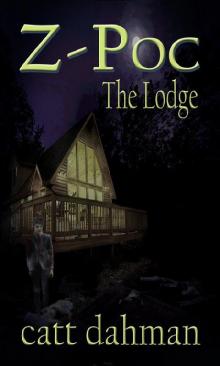 Z Poc: The Lodge
Z Poc: The Lodge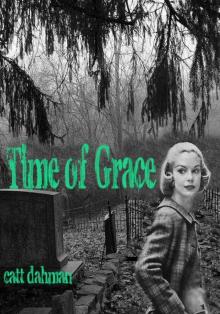 Time of Grace
Time of Grace Alice and Friends
Alice and Friends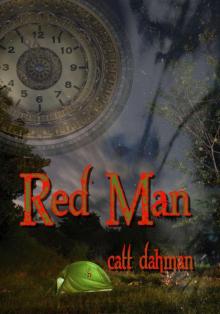 Red Man
Red Man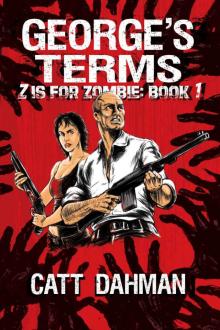 George's Terms: A Zombie Novel (Z Is For Zombie Book 1)
George's Terms: A Zombie Novel (Z Is For Zombie Book 1)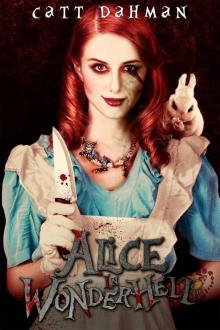 Alice In Wonderhell
Alice In Wonderhell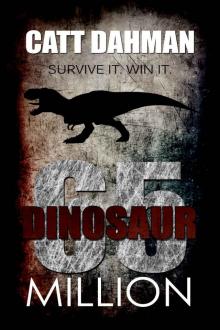 Dinosaur: 65 million
Dinosaur: 65 million Extinction Island 2
Extinction Island 2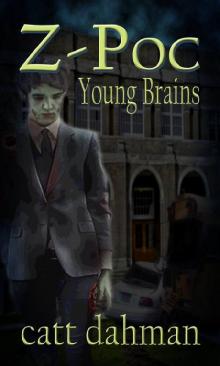 Z Poc: Young Brains
Z Poc: Young Brains Of Guilt and Innocence: Institute at the Criminally Insane (Virgil McLendon Thrillers Book 3)
Of Guilt and Innocence: Institute at the Criminally Insane (Virgil McLendon Thrillers Book 3)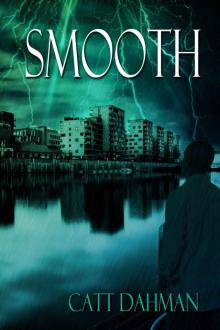 Smooth
Smooth Extinction Island
Extinction Island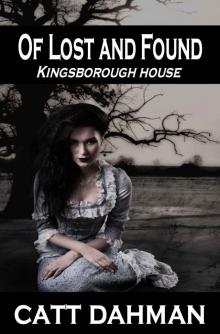 Of Lost and Found (the Kingsborough House): Kingsborough House (Virgil McLendon Thrillers Book 4)
Of Lost and Found (the Kingsborough House): Kingsborough House (Virgil McLendon Thrillers Book 4)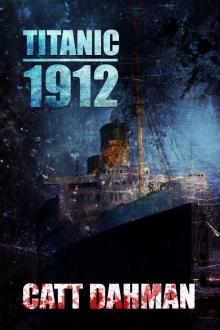 Titanic 1912: A Lovecraft Mythos Novel
Titanic 1912: A Lovecraft Mythos Novel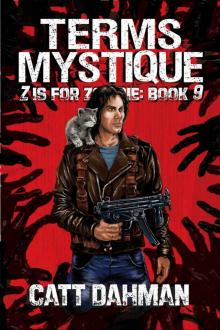 Terms Mystique: Z Is For Zombie 9
Terms Mystique: Z Is For Zombie 9 Wild Boys: Six Shooters and Fangs
Wild Boys: Six Shooters and Fangs When We Were 8
When We Were 8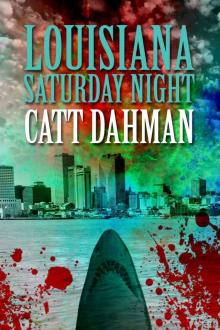 Louisiana Saturday Night
Louisiana Saturday Night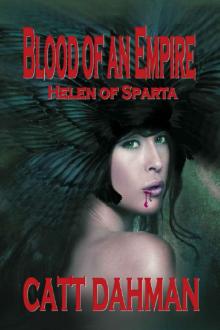 Blood of an Empire: Helen of Sparta
Blood of an Empire: Helen of Sparta Rage: Z Is For Zombie Book 5
Rage: Z Is For Zombie Book 5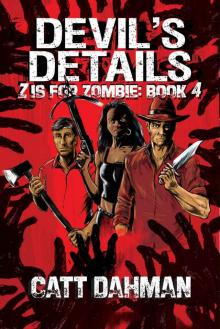 Devil's Details: Z Is For Zombie Book 4
Devil's Details: Z Is For Zombie Book 4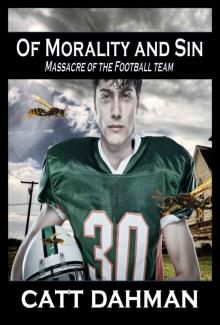 Of Morality and Sin: Massacre of the Football Team (Virgil McLendon Thrillers Book 7)
Of Morality and Sin: Massacre of the Football Team (Virgil McLendon Thrillers Book 7) Shadow Of Doubt: Z Is For Zombie Book 3
Shadow Of Doubt: Z Is For Zombie Book 3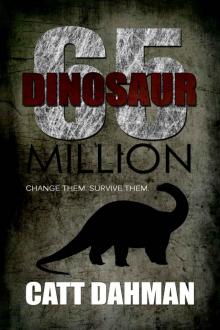 Dinosaur: 65 Million: Book 2 Change Them, Survive Them
Dinosaur: 65 Million: Book 2 Change Them, Survive Them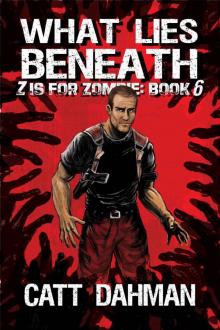 What Lies Beneath: Z is for Zombie Book 6
What Lies Beneath: Z is for Zombie Book 6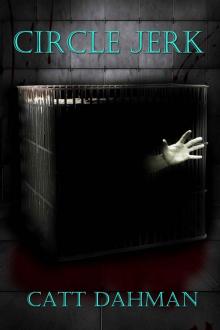 Circle Jerk
Circle Jerk The End of the Road: Z is for Zombie Book 8 (Z is for Zombie: Book)
The End of the Road: Z is for Zombie Book 8 (Z is for Zombie: Book)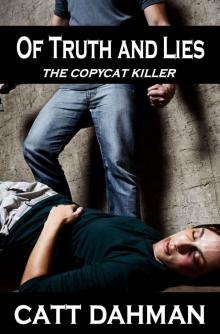 Of Truth and Lies: Hollingsworth Copycat Killer (Virgil McLendon Thrillers Book 5)
Of Truth and Lies: Hollingsworth Copycat Killer (Virgil McLendon Thrillers Book 5)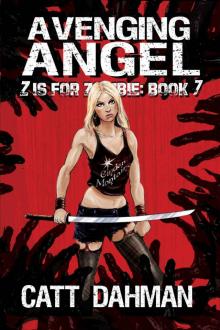 Avenging Angel: Z is for Zombie Book 7
Avenging Angel: Z is for Zombie Book 7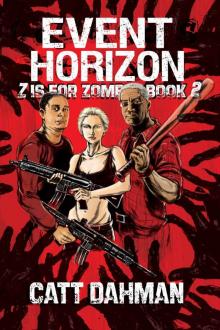 Event Horizon: Z Is For Zombie Book 2
Event Horizon: Z Is For Zombie Book 2 Of Blood and Water: Campground Murders (Virgil McLendon Thrillers Book 1)
Of Blood and Water: Campground Murders (Virgil McLendon Thrillers Book 1)